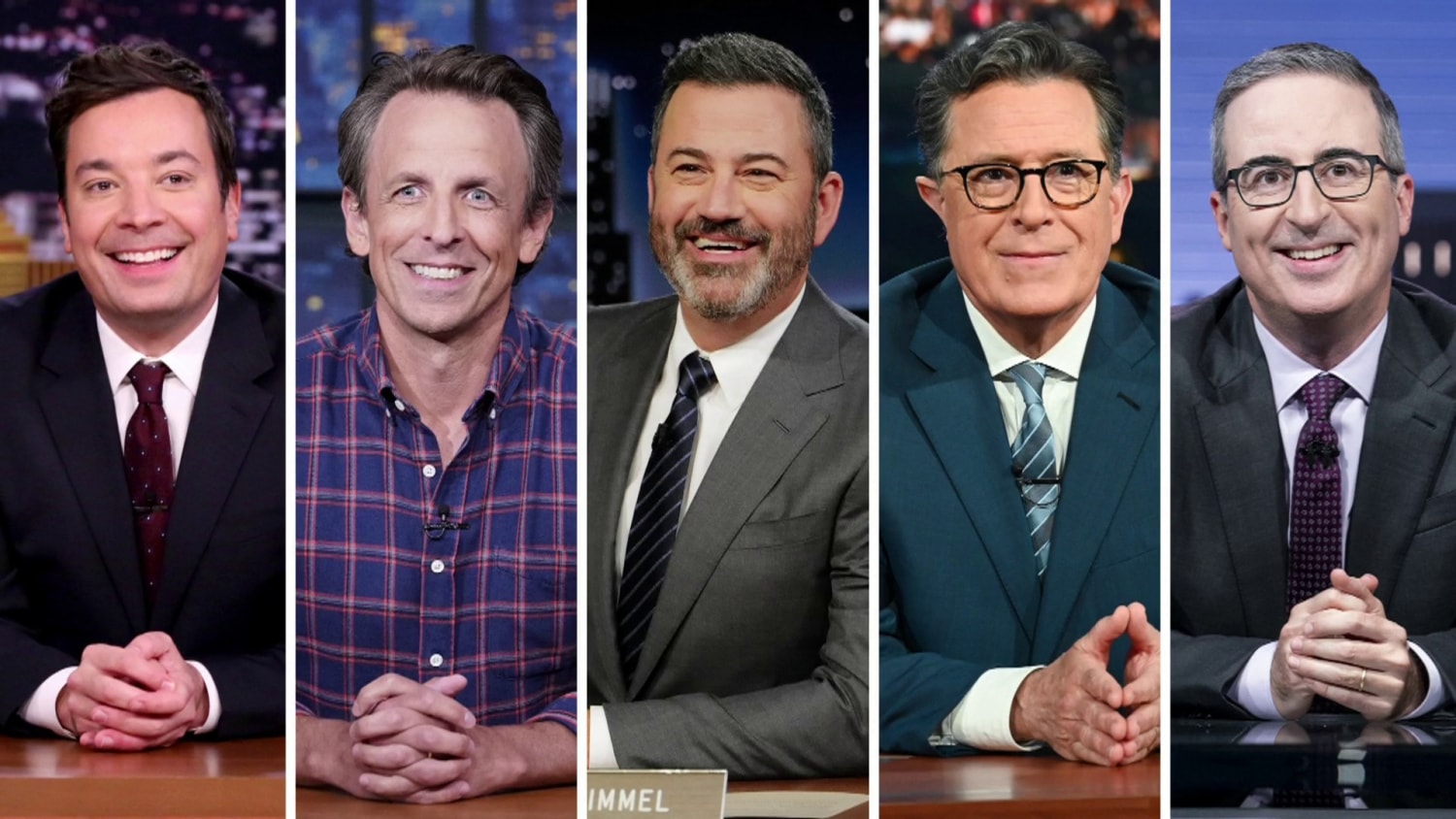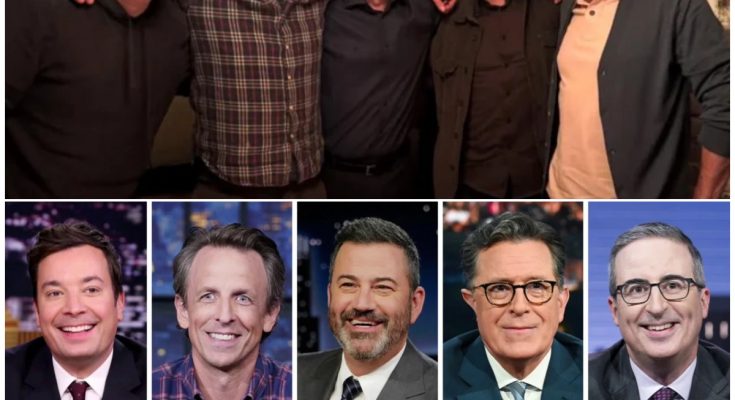In the brutal, unforgiving world of television, cancellations are a fact of life. Shows, even beloved ones, come and go with a shocking finality that broadcasters have long accepted as part of the business. But the abrupt and stunning cancellation of “The Late Show with Stephen Colbert” felt different. It wasn’t just the end of a program; for millions of viewers, it felt like the silencing of a vital, sane voice in a world gone mad.

Online TV streaming services
The decision by CBS, citing the familiar reasons of declining ratings and shifting preferences, was met with a firestorm of disbelief and anger from an audience that had come to depend on Colbert’s nightly brand of wit and catharsis. But in the quiet that followed the initial shock, something truly remarkable, something utterly unprecedented, began to happen. A rebellion started to brew, not in the streets, but in the green rooms and production offices of Colbert’s fiercest competitors. And now, in a stunning act of solidarity, that rebellion is about to be televised.
This Monday night, in what is shaping up to be one of the most historic moments in modern television, Jimmy Fallon, the energetic and affable host of NBC’s “The Tonight Show,” will walk onto the stage of the Ed Sullivan Theater. He will be crossing enemy lines, leaving his own network’s turf to stand shoulder-to-shoulder with his friend and rival, Stephen Colbert. And he won’t be alone. Joining him will be a veritable “Justice League” of late-night comedy: Seth Meyers of NBC’s “Late Night,” John Oliver of HBO’s “Last Week Tonight,” and Trevor Noah, the former host of “The Daily Show.” These are not just colleagues; they are the titans of the industry, and they are coming together for one reason: to send a powerful, unified message to the corporate suits who canceled their friend.

This is not normal. The late-night landscape is a fiercely competitive battlefield where hosts vie for the same guests, the same viral moments, and the same precious ratings points. For them to publicly unite on a rival network is the equivalent of a ceasefire in wartime. It is a testament to the deep respect and genuine friendship that exists behind the on-screen competition, a reality often lost on viewers who only see the public rivalry. As Seth Meyers put it, “We want to show Stephen that he’s not alone in this. We’ve all faced challenges, and we need to support each other, especially in tough times.” His words echo a sentiment that resonates deeply with anyone who has ever faced a setback.
Fallon’s heartfelt rallying cry on social media, “WE NEED YOU NOW MORE THAN EVER!!”, perfectly captured the sentiment felt not just by his fellow comedians, but by the audience at large. Colbert’s show wasn’t just another hour of celebrity interviews and comedy bits. Since its debut in 2015, and especially during the tumultuous years that followed, it had evolved into something more. It became a place of catharsis, a nightly ritual where a shell-shocked public could see their own anxieties, frustrations, and absurd observations reflected back at them with intelligence, grace, and incisive wit. Colbert was more than a host; he was a guide, a truth-teller who used his comedy as a scalpel to dissect the day’s political madness. His was a show that asked viewers to think, to engage, and to find a bit of sanity in the chaos.

The cancellation, therefore, felt like a profound cultural loss. To many, the official reasons given by CBS—declining ratings—rang hollow. In an era of streaming and fragmented audiences, every traditional show is facing ratings challenges. Colbert, however, was one of the few who had successfully navigated the new media landscape, with his digital clips consistently racking up millions of views online, extending his reach far beyond the nightly broadcast. The decision felt less like a sound business strategy and more like a failure of corporate nerve—a sign that perhaps Colbert’s smart, substantive, and often challenging brand of comedy had become too hot for the network to handle. The idea that a show that asks tough questions and tackles difficult topics could be deemed a liability is a chilling thought for anyone who believes in the power of public discourse.
This is what makes the upcoming “crossover” event so significant. It is a defense not just of a man, but of an idea: that late-night television can and should be more than just silly games and softball questions. The hosts descending on the Ed Sullivan Theater—Fallon with his infectious joy, Meyers with his sharp “A Closer Look” segments, Oliver with his meticulously researched deep dives, and Noah with his global perspective—each represent a different facet of the intelligent, thought-provoking comedy that Colbert championed. Their presence is a defiant statement that this kind of content matters, that it has a loyal audience, and that it is worth fighting for. It’s a message that goes far beyond a single show, speaking to the very purpose of a genre at a crossroads.



